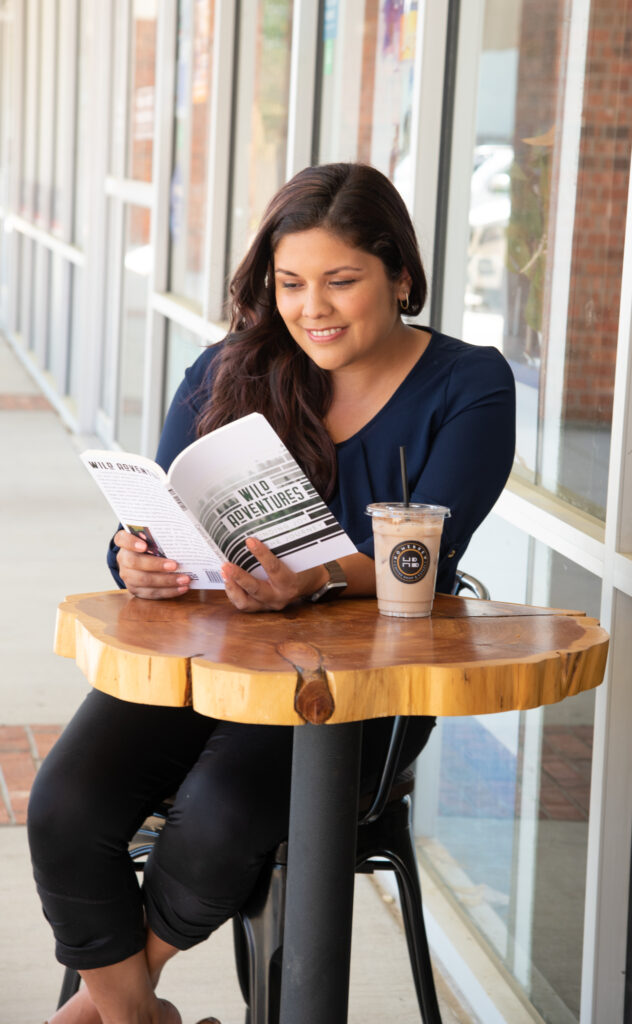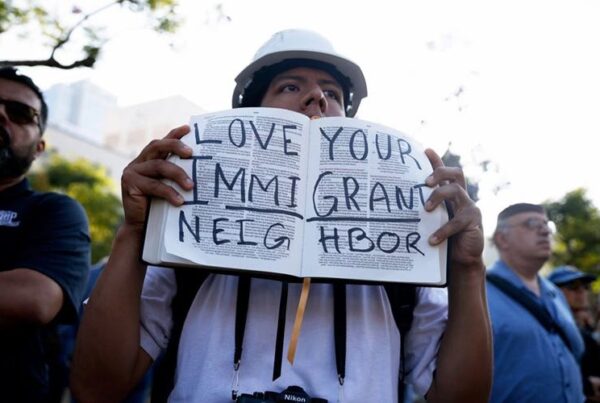On May 24, 2022, 18-year-old Salvador Rolando Ramos fatally shot nineteen students and two teachers, and wounded seventeen other people, at Robb Elementary School in Uvalde, Texas. Uvlade is a small predominately Latino community within eighty miles of the Mexican border. Many times, when injustices and evil acts occur around our country, we can feel disconnected if it does not directly affect us. Our Editorial Director, Jess Galvan, shares her experience in talking with her second grade daughter about the shooting. Her hope is that this shows a small piece into what it’s like discussing tragedies with our kids for those who do not have school-aged children or do not have to confront certain issues with our much younger generation.
“Hey chiquita, Mami and Papi need to talk to you about something important before you go to school.”
Last week, my husband and I stayed up late Tuesday night strategizing how we were going to talk to our seven year old daughter about the shooting at Robb Elementary in Uvalde, Texas. Her school is just four hours away from Uvalde and would have stricter security in place in response to the shooting. We didn’t have the luxury of not talking to her. If she didn’t hear about it from her classmates or teachers, she would have definitely asked about all the changes in her school that happened overnight. We needed to have answers for her.
As a parent, it’s impossible to predict what your child is going to say or ask in this scenario. Many professionals advise that you give just enough info appropriate for their age and to follow their lead. But that means being ready for wherever the conversation can go.
“What’s going on, Mami?”
My daughter sits on our couch after just scarfing down her bagel and fruit for breakfast. Her slender frame barely fills the half of a couch cushion and her tiny feet sway below brushing the tips of her toes against the living room rug. I pause to take in her small face. Her dark brown eyes lift to look at us as she pushes her purple glasses up the bridge of her nose to get a better look. She tosses her dark hair away from her face.
I can’t take this back. Once I tell her, she will be changed. A layer of her innocence, her sense of safety in the world, will peel back even further.
I took this same pause years ago when we talked about the riots and protests that were flooding our neighborhood in Chicago in response to George Floyd’s murder. When we protested against the family separation acts and unlawful immigration/refugee policies, I paused in lament that I had to tell her because it would affect people that she loved. Again, I stopped to mourn her innocence before I explained the shootings down our block as we headed to support our community in an act of solidarity. When parents have to explain the hard realities of the world to their children, there is always that yearning that it wasn’t this way.
I take a deep breath and tell her,
“Today, school is going to look and feel very different.”
My husband and I explain the incomprehensible. My mind fogs as I search for parachute words and phrases while silently praying they land softly in her heart.
Her gaze changes with widened eyes as she listens and slowly makes her way closer to me, until her entire body is cradled in my arms. She’s confused, afraid, and just wants to be held.
As I try to console her, I find myself unable to make any real promises that would assuage her fear.
I can’t say, “It was the first time.”
I can’t say, “It’ll never happen again.”
I can’t even say, “You’re completely safe in school” because I don’t know any of these things to be completely true.
I experienced my first active shooter scare my junior year of high school. An hour before dismissal, we were locked in our classrooms over a gun threat in one of the gym locker rooms. A student declared they had a gun and was going to shoot up the school. Active shooter drills weren’t “a thing” yet so our teacher just locked the classroom door and we hid under our desks, waiting. I remember Columbine, Sandy Hook, and every other school name in-between. Our generation has aged witnessing this evil grow and morph into different forms. Now as an adult, I find myself having to talk to my children about it when I am still struggling to process it myself.
We finish explaining and leave space for her questions and to share her feelings. She thinks over the words we just said and I can see her little mind jaggedly processing a more broken world. She asks about the students that died,
“How old were the kids? Was it all one class?”
“They were mainly fourth graders and two teachers. I’m not sure if it was all the same class, chiquis. We are still finding out more about what happened.”
“Mami, can we pray?”
“Of course.”
My husband scoots in close to me as we cover her with our bodies, a futile effort to keep out any more darkness. We pray to a heavenly Creator that has always cradled us in times of joy and despair. We pray for the children and their families. May they feel a supernatural peace in a time that no parent should ever experience. We pray for all the kids in our nation this morning getting ready to walk through their school doors. I even find myself praying for our prayer and all the “thoughts and prayers” being sent out. The vicious cycle spinning through my mind.
As we wrap up our conversation, in words laced with wisdom, my daughter says,
“What are the adults going to do about this? Is the bad man in jail?”
Even my seven year old knows that our faith prompts us to mourn, pray, and “send thoughts” to the victims but the next step our God requires is action. In the Bible, James declares:
“If a brother or sister is without clothes and lacks daily food 16 and one of you says to them, “Go in peace, stay warm, and be well fed,” but you don’t give them what the body needs, what good is it? 17 In the same way faith, if it does not have works, is dead by itself. 18 But someone will say, “You have faith, and I have works.”[a] Show me your faith without works, and I will show you faith by my works. 19 You believe that God is one. Good! Even the demons believe—and they shudder. 20 Senseless person! Are you willing to learn that faith without works is useless?”
James 2:15-20
All our children are asking this of us: What are we going to do? How are we going to use our time, our resources, our talents to make this world a closer reflection of its creator? I’m not just talking about school shootings. The same applies to the hate that has hurt our black siblings for too many years. Their grandparents and elders can’t simply go to a grocery store and buy food to feed their families or run in their neighborhoods without fear for their lives. Our asian friends can’t walk down the street without being physically attacked or safely worship in their own church. Most recently, a medical facility in Tulsa, OK became another horrific scene of gun violence.
I respond to my daughter,
“No mija, he actually died. He was killed by first responders to stop him from hurting more people.”
“Mami, that’s really sad because he was a person too.”
I finally break. It’s not until this moment that I realize that I have been holding my breath and my own heartbeats. I hug my precious girl tightly as we sob together.
She gets it.
I look up at the ceiling and praise the Lord for this ray of light- for the reminder of the hope He gives us in Jesus. For reminding me through my daughter that love and forgiveness can truly conquer all. Our children can be examples of how to radically and ferociously love our fellow man without question. And more than anything, her innocence and faith in humanity is still intact. She still believes in redemption, in the miraculous hope we are offered daily.
In trying to comprehend how someone could do such a thing, she wondered if the shooter wasn’t loved enough, or if their parents were missing, or if something happened to them that would make them feel so much brokeness. Her questions reinforced that we all need love and empathy.
This conversation that I was dreading so much ended up being exactly what was needed. In talking with my daughter on a tragedy that never needs repeating, I witnessed the goodness that can combat so much evil. My daughter lead the conversation into exactly what she needed in order to cope and understand. She listened, she mourned, she asked questions for understanding, she fervently prayed, and she challenged all of us to act just like Christ commands us all to do the same.
Act out in love, act out in empathy, act out in bold intention.
Our children are watching us.
I’d like to give a special thank you to my daughter for generously sharing her voice in the audio recording.

Jessica Galvan is a first generation Mexican-American woman of faith and is the Editorial Director for Chasing Justice. When she isn’t wordsmithing for the pursuit of faith and justice, she is editing for a variety of clients in publishing, most recently Penguin Random House. Raised in Chicago, Jessica enjoys leading small groups with her local church and volunteering with multiple organizations striving to lift up underserved communities. She loves reading a good book, spontaneous kitchen dance parties, and gardening. Jess recently moved to the Houston, TX area with her husband, two daughters, and newborn son.
The views and opinions expressed on the Chasing Justice Blog are those of the authors and do not necessarily reflect the official policy or position of Chasing Justice. Any content provided by our bloggers or authors are of their opinion and are not intended to malign any religion, ethnic group, club, organization, company, individual or anyone or anything.







